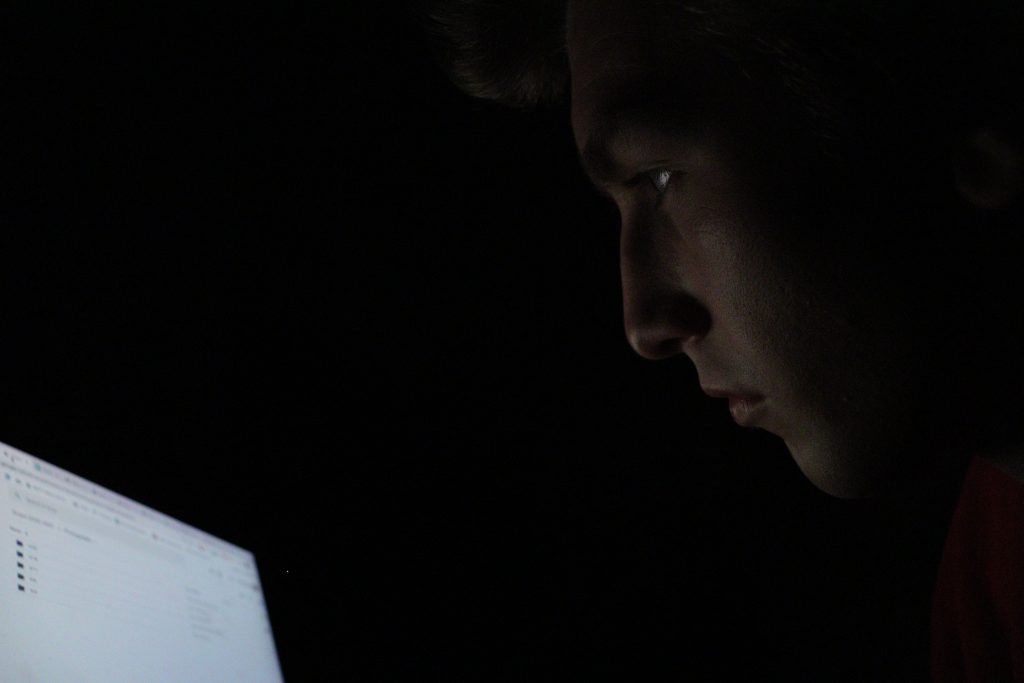
Now that online school and events have become the new normal, students are staring at their computer screens more than ever before. However, it’s important to keep in mind the adverse effects on eyesight this lifestyle can cause.
Tim Cundiff, an optometrist from the Vision Care Center in Peoria, explained that the more people look at screens, the more it impacts the eyes.
“Our eyes are controlled by muscles,” Cundiff said in an email interview. “Those muscles have to work harder when we look at a target close to our face (1-2 feet away). When we focus on a screen, monitor, laptop [or] phone for long periods of time, we are straining those muscles.”
Over the years, Cundiff has seen an increase in eye problems due to a condition known as Digital Eye Strain. Common symptoms that occur after long periods of screen time include eye fatigue, eyestrain, headaches, blurred vision, double vision, dry eyes, irritated and tired eyes.
”The screens emit a blue wavelength of light directly into our face and our eyes,” Cundiff said. “Staring at this light can impact our vision as mentioned above, but also, it can impact our overall well-being.”
Cundiff recommends that students that spend long periods of time on a screen, whether they are in an online class, studying for a test or typing a paper, should follow a rule called the “20/20/20” rule.
“Every 20 minutes that you spend on a screen, you should take a 20 second break and look at something that is 20 feet away from you,” Cundiff said. “You need to give those eye muscles frequent breaks and look away from your screen.”
Additionally, Cundiff recommends that individuals should blink regularly in addition to taking breaks.
“Research shows that our blink-rate decreases significantly when we stare at our screens,” Cundiff said. “When we are concentrating so intently on our monitors, we don’t blink as often as we should. That can lead to irritated, dry, tired eyes. It sounds so simple, but we need to make a conscious effort to blink regularly.”
Vinny Lobosco, a junior construction management major, has become more conscious of the fact that staring at his computer screen is not good for his eyesight.
“I personally do not think it has had a major effect on my eyesight, but sometimes my eyes do feel strained so I have to give them a break,” Lobosco said.
Although Lobosco has not noticed any significant changes, he has still considered taking steps to prevent any further damage.
“I may consider investing into these glasses that I saw in an advertisement that [reduce] the amount of blue light that your eyes perceive when looking at a screen,” Lobosco said. “Blue light [is] what causes eyes to strain the most, so these might be a good investment.”
Cundiff also said people benefit from wearing blue-light blocking glasses.
At the end of the day, Cundiff stresses that everyone needs to give their eyes a break and that individuals need more physical activity than digital activity. He suggested that individuals spend time outside, exercise and go for a walk as a nice rest for the eyes.
